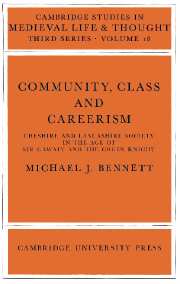Book contents
- Front Matter
- Contents
- List of maps and tables
- Acknowledgements
- Abbreviations
- Genealogical table
- Introduction
- 1 THE REGIONAL SOCIETY
- 2 THE COUNTY COMMUNITIES
- 3 LESSER SOLIDARITIES
- 4 THE POPULATION
- 5 LANDED SOCIETY
- 6 THE PEASANTRY
- 7 TOWNS, TRADE AND INDUSTRY
- 8 THE CHURCH
- 9 MILITARY SERVICE
- 10 POWER, PATRONAGE AND PROVINCIAL CULTURE
- 11 CONCLUSION
- Bibliography
- Index
6 - THE PEASANTRY
Published online by Cambridge University Press: 22 September 2009
- Front Matter
- Contents
- List of maps and tables
- Acknowledgements
- Abbreviations
- Genealogical table
- Introduction
- 1 THE REGIONAL SOCIETY
- 2 THE COUNTY COMMUNITIES
- 3 LESSER SOLIDARITIES
- 4 THE POPULATION
- 5 LANDED SOCIETY
- 6 THE PEASANTRY
- 7 TOWNS, TRADE AND INDUSTRY
- 8 THE CHURCH
- 9 MILITARY SERVICE
- 10 POWER, PATRONAGE AND PROVINCIAL CULTURE
- 11 CONCLUSION
- Bibliography
- Index
Summary
The distinction between those persons living off rents and those labouring to wring a livelihood from the soil is reasonably easy to maintain. Contemporaries would have regarded this division as the fundamental cleavage in the social order. Even in the more economically developed regions, the proportion of the populace engaged in trade, industry and the professions was small, and such groups had no fixed place in the ordered hierarchy of landed society. Yet, while there are good grounds for dividing the rural population into two main categories, there are no firm guide-lines as to how they might be labelled. The landed classes present the least problems. Lords of the manor were of gentle rank or above, and visibly set apart by their life-style and interests. It is far less easy to give definition to that great residual class, the common folk of the countryside. The terms used in the Lancashire poll-tax returns in 1379 to refer to the nine out of ten men who were not gentlemen, craftsmen or servants, cannot be readily translated into the terminology of class. In West Derby hundred they were called ‘cultores’, while in Blackburn hundred they were named ‘incolae et laboratores’ Despite misgivings about the appropriateness of the label, in this chapter they will be termed ‘peasants’.
It is not suggested that the peasantry was a homogeneous class.
- Type
- Chapter
- Information
- Community, Class and Careers , pp. 90 - 107Publisher: Cambridge University PressPrint publication year: 1983



